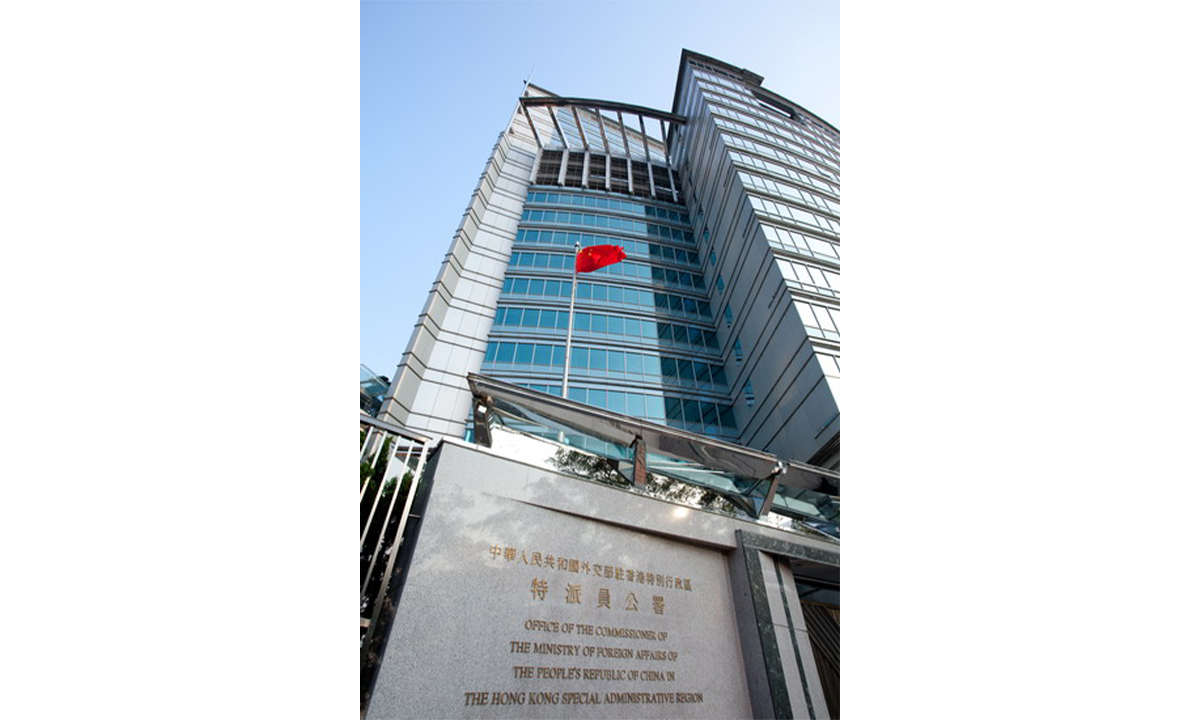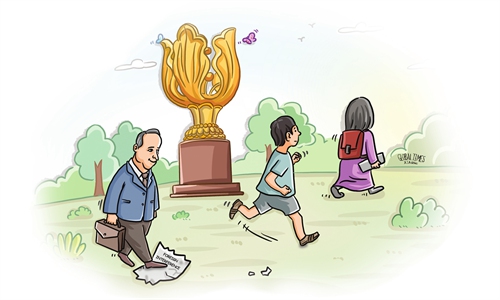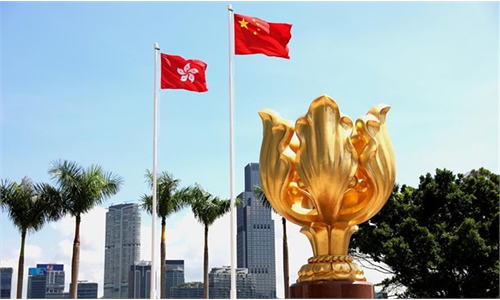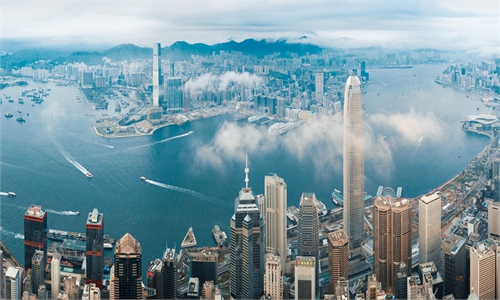Commissioner's Office of China's FM in HK refutes WSJ editorial, calling it double standards

Commissioner’s Office of China’s Foreign Ministry in the HKSAR.
Since the public consultation period for the Article 23 legislation of the Basic Law in the Hong Kong Special Administrative Region (HKSAR), the central government's authorities on Hong Kong affairs, the HKSAR government and some local lawmakers have been tirelessly refuting the smears and attacks on the law by the US-led Western media. In a fresh blowback, the Commissioner's Office of China's Foreign Ministry in the HKSAR refuted an editorial of the Wall Street Journal (WSJ), saying that labeling the new law as "sweeping" and "conveniently vague" is downright double standards.
The commissioner's office said it's no surprise to see the WSJ's recent editorial titled "Hong Kong's Giant Leap Backward" as being alarmist has been a "silver bullet" for the US media to "catch readers' eyes." Many Western media outlets, including the WSJ, should take credit for their distorted Hong Kong impression, the Chinese authority said.
The Article 23 legislation has referred to the laws of many common law jurisdictions, including the US, and is consistent with definitions of terms in different countries' national security legislation, the commissioner's office said. The WSJ article also trumped up another charge against Hong Kong by accusing the new law of "regarding foreign influence as a threat," as no such a phrase can be found in the text of the law, it added.
In reviewing the past month's foreign media coverage on the Article 23 legislation, the Global Times found out that the central government's authorities on Hong Kong affairs, the HKSAR government and some local officials have successively refuted those false reports related to the law by at least five Western media outlets, including Bloomberg, the WSJ, The Washington Post, BBC and The Times.
Particularly in response to Bloomberg's report, which mentioned that Article 23 should ban communication apps including Telegram and Signal, the Hong Kong government stated in an official announcement on March 6 that Bloomberg's fake news has affected the media's credibility and public trust. Subsequently, Bloomberg made corrections to its report.
When the HKSAR government was fully advancing Article 23 legislation, the government proactively refuted some foreign media reports five times in two weeks. For instance, in response to the BBC's report on the sentencing of the riot case of July 1, 2019, the government said that the report smeared the HKSAR's law on maintaining national security with false accusations.
Regarding the Western media's misunderstandings and distortions of topics related to Hong Kong, some members of the Hong Kong Legislative Council (LegCo) said they are "not unfamiliar with these tactics."
LegCo member Nixie Lam Lam told Global Times that some forces in the US and the West are still making moves, and one of their commonly used tactics in targeting Hong Kong affairs is to spread these false messages through Western media. "The primary purpose of using these methods is to contain China's development."
The HKSAR Chief Executive John Lee also said in January that the government would set up a rebuttal team to dismiss false claims and slander against the legislation on social media.
It appears that the Western media have misinterpreted and misunderstood the provisions of Hong Kong's Safeguarding National Security Ordinance, known as the law under the Article 23, Chu Kar-kin, a veteran commentator based in the HKSAR and member of the Chinese Association of Hong Kong and Macao Studies, told the Global Times.
"They are quoting the law out of context and I suggest they should read the contents seriously," Chu said, noting that human rights should not be a defense or excuse for criminals.
National security has a heavier weighting than merely personal rights and must be ranked in a higher priority than human rights. This is a universal practice adopted by most countries, he noted.
Western media should never abuse their roles to brutally defame this city, Chu noted. "Tourists and merchants still find Hong Kong attractive, which is a slap in the face of Western press."




